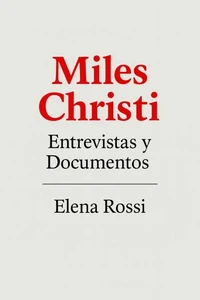My interview with a member of this religious institute-who wished to remain anonymous-is unsettling, as many of the facts surrounding these types of institutes are often deliberately buried and forgotten. We believe it is essential to open the door to critical reflection, just as Tosatti[1] did in one of his recent publications, when he briefly referenced the case of this Argentine-origin institute.
Such lived experiences should not be left to fade into obscurity, for they help shed light on the hidden ways in which responses to the aftermath of the Second Vatican Council-especially outside the progressive modernist bloc-were, in fact, deeply complicit in that unraveling.
My interview with a member of this religious institute-who wished to remain anonymous-is unsettling, as many of the facts surrounding these types of institutes are often deliberately buried and forgotten. We believe it is essential to open the door to critical reflection, just as Tosatti[1] did in one of his recent publications, when he briefly referenced the case of this Argentine-origin institute.
Such lived experiences should not be left to fade into obscurity, for they help shed light on the hidden ways in which responses to the aftermath of the Second Vatican Council-especially outside the progressive modernist bloc-were, in fact, deeply complicit in that unraveling.

 , qui est-ce ?
, qui est-ce ?